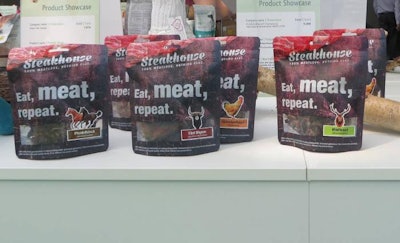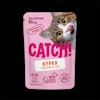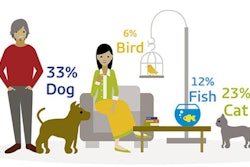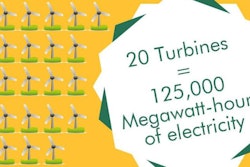
If there was any doubt that the high-meat pet food trend had gone global, Interzoo 2016 quickly dispelled that uncertainty. Pet food companies from all over the world touted fresh meat, high meat levels, BARF and various other claims to describe this focus, along with its frequent companion, grain free.
As a quintessential example of this all-encompassing trend, the German company whose products appear in the photo even calls itself Fleisheslust Tiernahring—MeatLove. This branding was all over its products, staff’s clothing and large stand, which also proclaimed, “Love meat tender.” (A small kiosk in the stand with cat food products had somewhat different branding that probably is not suitable to include in this blog!)
Even small companies from developing regions got in on the act. For instance, Nativia, a four-year-old company based in the Czech Republic (founded by former employees of Dibaq), explained in-depth on its packaging and promotional literature what terms like “real meat” mean and exactly how much fresh meat, on a dry matter basis, is in each of its products and how much of the protein content comes from animal protein.
But some companies did buck the trend, even to the extreme of offering vegetarian dog food formulas. I saw at least two examples: Veggie Dog from Josera of Germany (as part of its Foodforplanet/Green Petfood division) and Gheda Mangini of Italy’s Kir Amore Adult Vegetarian dog food. Ironically, the companies’ stands were right across the aisle from each other in one hall. I think—hope—the idea behind both products was just to attract attention?
In addition, a few companies pushed back on the meat and grain-free focus. Allco of Germany carried its philosophy through from Interzoo 2014, when its stand included large signs with messages such as “Why dogs are not wolves (any more).”
Shortly after Interzoo, Prins Petfoods of the Netherlands sent a press release questioning whether high meat and protein levels were essential or good for dogs, and whether their nutrient needs are similar to those of wolves. “Our pet dog is still a carnivore that needs certain essential nutrients such as proteins, which provide important nutrients for the body,” the Prins website says. “This does not mean that our dogs have a high need for protein.” (I would question whether the dog is truly a carnivore, but otherwise I agree with the company’s statement, including potential environmental and sustainability impacts of the high meat focus.)
Along sustainability lines, Beco Pets, which bills itself as the UK’s top manufacturer of eco-friendly pet products (think bamboo-based feeding dishes and pet beds filled with recycled plastic bottles), launched its first food product at Interzoo. While the company stressed that the dog food includes fresh meat only and no meat meals, co-founder Toby Massey told me they weren’t trying to compete with the majority of companies by having the highest meat levels. Rather, the focus for Beco Pets’ Eco Conscious Food for Dogs is on the provenance of its ingredients. For example, the chicken formula includes locally sourced free-range chicken and even fat and eggs from free-range chickens. In addition, the company says its food is packaged in the first plastic, resealable bag that is completely biodegradable.
Other pet food trends
At a show the size of Interzoo, it’s impossible to talk to all or even most of the pet food companies with stands. Yet walking through every hall and talking to several exhibitors surfaced trends other than meat:
- Limited ingredient and condition-specific diets—not necessarily new but very present this year. Vital Petfood Group, a Danish private-label manufacturer with its own brands, is now offering customized formulas for conditions such as allergies, renal support, weight reduction, cardiac support and gastro support, including in therapeutic versions for a line of veterinary clinics in Denmark.
- New formats—in addition to the “alternative” formats that are growing more popular, such as raw and freeze-dried, an Italian company, MSM Pet Food, debuted a three-layered kibble, with a gel-like innermost layer. “The manufacturing process turns the maize starches into a jelly and does not alter the proteins,” its brochure states.
- Insects were buzzing—as part of its Green Petfood line, Josera also debuted a dog food with insect protein for the German retail market. Previously, the only complete insect-based pet food on the market was a veterinary diet introduced by Trovet in the Netherlands in 2015; Tarique Arsiwalla, co-founder of Protix, which supplies insect proteins to Trovet and other companies, told me his company was working with several other pet food manufacturers to launch more insect-based diets soon. (Protix does not supply Josera.)
- Pet food plant expansions and production—just two I heard about included United Pet Food, a private-label manufacturer based in Belgium, opening a new plant in Poland to make biscuits; and Nature’s Variety, maker of raw and raw mix diets (based in St. Louis, Missouri, USA) taking advantage of support from its parent company, Agrolimen, to now manufacture product lines specifically for the European market in Agrolimen plants in France and Spain.
- New distribution methods—a Polish startup, Karmomaty.com, debuted a self-service device, the Karmomat, with automatically opening slots for storing and dispensing pet foods. The idea is that it would be placed outside a store or other establishment—conceivably, any type—and a pet owner could pick up pet food ordered online or select, pay for and receive a food directly on site, at any time on any day. My colleague likened it to the Red Box movie dispensers popular in the US.



















